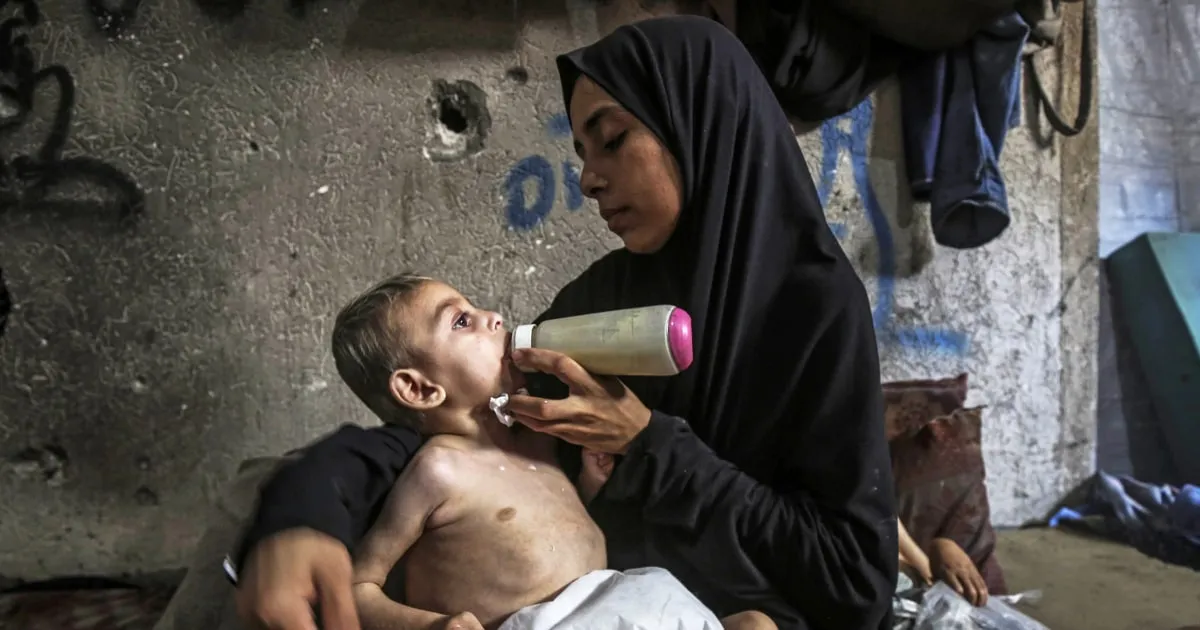
The recent trickle of aid that Israel has allowed into Gaza is alarmingly insufficient to prevent a looming famine, according to humanitarian organizations. On Monday, President Donald Trump emphasized the urgency of providing Palestinians in the enclave with essential food and safety. This partial easing of restrictions, enacted as part of a new series of tactical pauses, comes against a backdrop of escalating global outrage over the increasing death toll and visible starvation amid Israel's military offensive in the besieged territory.
Tom Fletcher, the United Nations Emergency Relief Coordinator, cautioned in a statement on Sunday that while the recent developments represent progress, they fall far short of the vast amounts of aid required to avert both famine and a catastrophic health crisis. Following Israel's announcement to pause military operations in specific areas for 10 hours each day, Fletcher remarked to BBC News, “Sunday's aid deliveries were merely a drop in the ocean.” He stressed that the upcoming days are critical in addressing the escalating hunger crisis.
As the situation worsens, the Palestinian health ministry reported on Monday that 14 new deaths in the past 24 hours were linked to “famine and malnutrition,” including two children. This grim statistic raises the total number of malnutrition-related deaths to 147, with 88 of those being children, since the onset of the conflict. Most of these fatalities have been recorded in recent months, according to United Nations statements. However, NBC News has not been able to independently verify these figures.
When asked whether he concurred with Israeli Prime Minister Benjamin Netanyahu's assertion that there is “no starvation in Gaza,” Trump expressed skepticism, stating, “Not particularly.” While speaking in Scotland, he noted that he had seen distressing images from Gaza and commented, “Those children look very hungry.” Despite these observations, there has been no indication of a shift in U.S. policy towards Israel, which has consistently supported the nation throughout the conflict.
Humanitarian organizations and medical professionals have been sounding alarms for weeks about the increasing rates of malnutrition in Gaza. Since May, when Israel lifted its blockade on aid, only a minimal amount of food has been allowed into the area. Beckie Ryan, the response director for CARE, a humanitarian agency, stated in a phone interview that the scale of the aid needs to be significantly larger and immediate to make a meaningful impact. Ryan expressed cautious optimism but emphasized that a ceasefire would be the most effective solution to combat the spiraling hunger crisis.
On Sunday, just under 30 aid packages containing food were airdropped over Gaza, according to COGAT, the Israeli military’s liaison with the Palestinians. Video footage from NBC News showed groups of Palestinians rushing to collect the limited supplies falling from parachutes in northern Gaza, which were airdropped in collaboration with the United Arab Emirates and Jordan. Many Palestinians were also seen carrying flour bags following the distribution of more than 120 trucks worth of aid by the U.N. and other organizations.
Abdul Rahman Al-Kahlout, an 18-year-old resident, described his harrowing experience of waiting for hours in the scorching sun, hoping to secure supplies before they ran out. “We died in the sun for four hours,” he recounted, detailing the chaos and fear as shots were fired and soldiers surrounded the crowd. Tragically, more than 1,000 individuals, including children, have reportedly lost their lives while trying to access aid since the new distribution system was implemented in late May, overseen by the controversial Gaza Humanitarian Foundation, which is backed by the U.S. and Israel.
Amid increasing international pressure, Israel has been attempting to justify its restrictions and the newly introduced distribution system by claiming that Hamas has been diverting aid from civilians. However, an internal U.S. government analysis reportedly found no evidence of systematic theft of aid supplies by Hamas, a report that was later seen by NBC News. The Israel Defense Forces dismissed this report as biased.
The World Food Programme announced on Sunday that it has sufficient food supplies in the region, along with shipments en route, to feed the entire population of Gaza for nearly three months, provided they are allowed access. However, the organization warns that approximately one-third of the population is still going days without food, highlighting the urgent need for a comprehensive response to this escalating crisis.